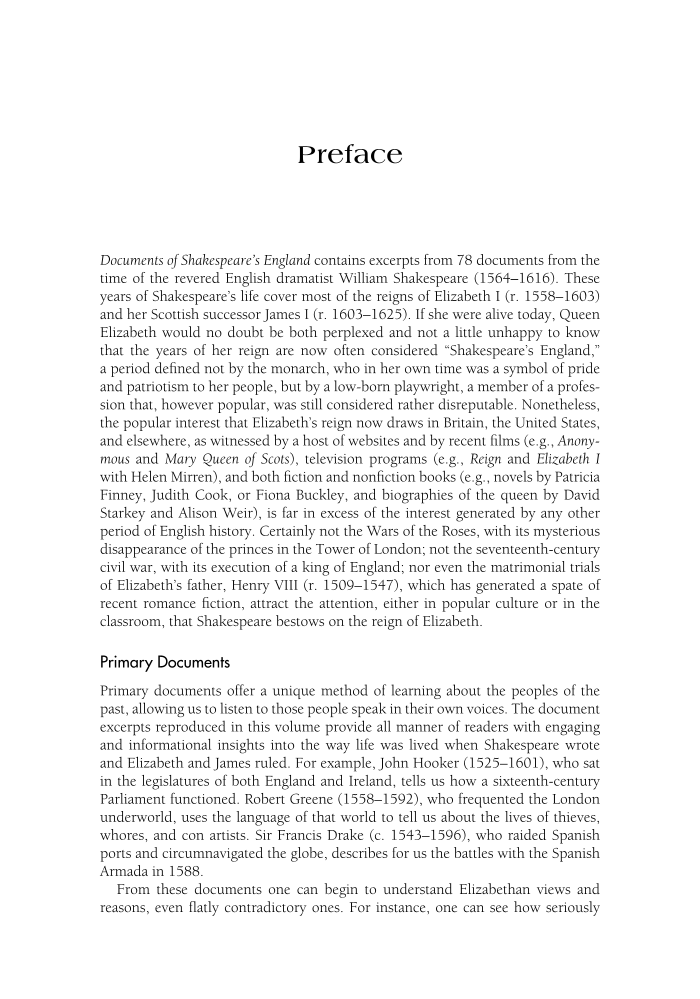Preface Documents of Shakespeare’s England contains excerpts from 78 documents from the time of the revered English dramatist William Shakespeare (1564–1616). These years of Shakespeare’s life cover most of the reigns of Elizabeth I (r. 1558–1603) and her Scottish successor James I (r. 1603–1625). If she were alive today, Queen Elizabeth would no doubt be both perplexed and not a little unhappy to know that the years of her reign are now often considered “Shakespeare’s England,” a period defi ned not by the monarch, who in her own time was a symbol of pride and patriotism to her people, but by a low-born playwright, a member of a profes- sion that, however popular, was still considered rather disreputable. Nonetheless, the popular interest that Elizabeth’s reign now draws in Britain, the United States, and elsewhere, as witnessed by a host of websites and by recent fi lms (e.g., Anony- mous and Mary Queen of Scots ), television programs (e.g., Reign and Elizabeth I with Helen Mirren), and both fi ction and nonfi ction books (e.g., novels by Patricia Finney, Judith Cook, or Fiona Buckley, and biographies of the queen by David Starkey and Alison Weir), is far in excess of the interest generated by any other period of English history. Certainly not the Wars of the Roses, with its mysterious disappearance of the princes in the Tower of London not the seventeenth-century civil war, with its execution of a king of England nor even the matrimonial trials of Elizabeth’s father, Henry VIII (r. 1509–1547), which has generated a spate of recent romance fi ction, attract the attention, either in popular culture or in the classroom, that Shakespeare bestows on the reign of Elizabeth. Primary Documents Primary documents offer a unique method of learning about the peoples of the past, allowing us to listen to those people speak in their own voices. The document excerpts reproduced in this volume provide all manner of readers with engaging and informational insights into the way life was lived when Shakespeare wrote and Elizabeth and James ruled. For example, John Hooker (1525–1601), who sat in the legislatures of both England and Ireland, tells us how a sixteenth-century Parliament functioned. Robert Greene (1558–1592), who frequented the London underworld, uses the language of that world to tell us about the lives of thieves, whores, and con artists. Sir Francis Drake (c. 1543–1596), who raided Spanish ports and circumnavigated the globe, describes for us the battles with the Spanish Armada in 1588. From these documents one can begin to understand Elizabethan views and reasons, even fl atly contradictory ones. For instance, one can see how seriously
Document Details My Account Print multiple pages
Print
You have printed 0 times in the last 24 hours.
Your print count will reset on at .
You may print 0 more time(s) before then.
You may print a maximum of 0 pages at a time.




































































































































































































































































































































